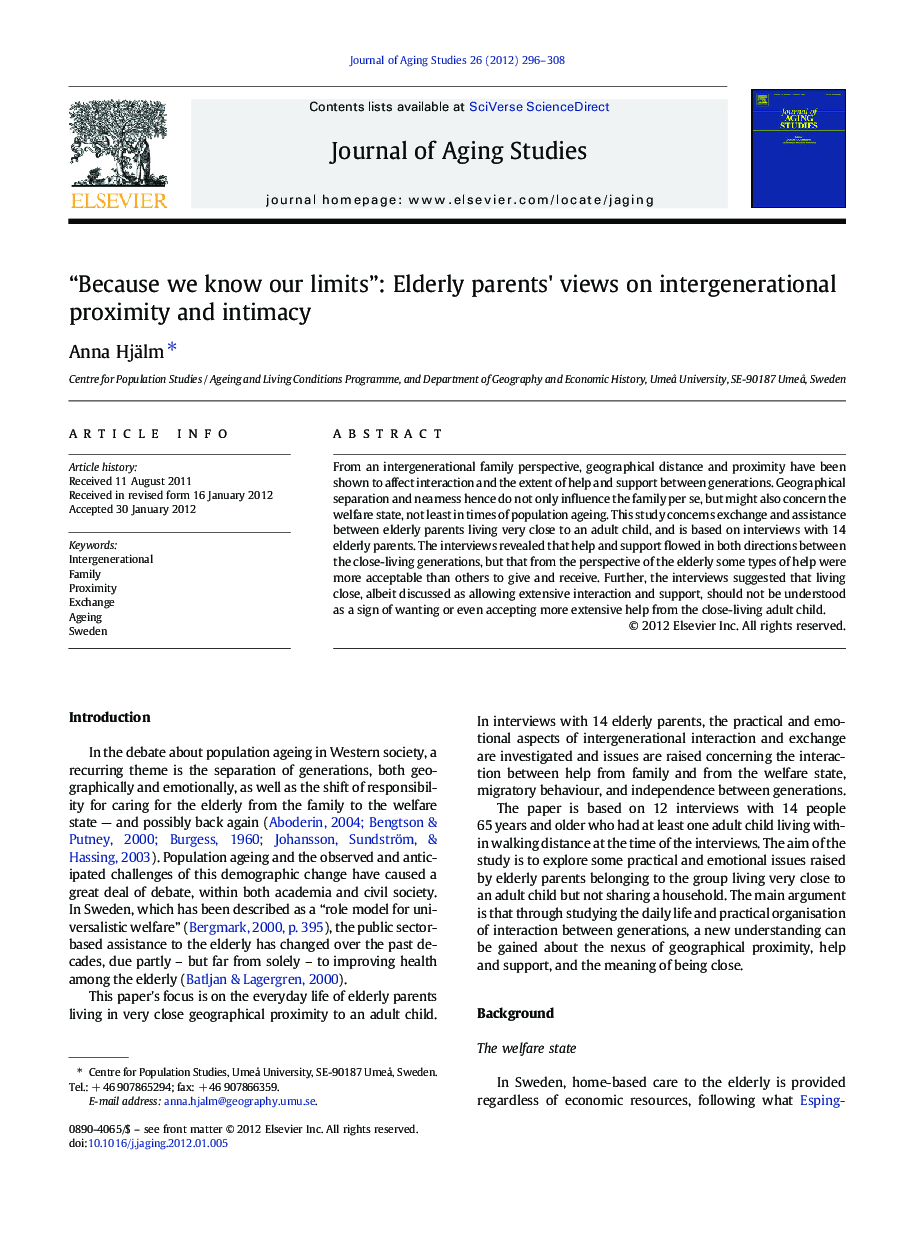| Article ID | Journal | Published Year | Pages | File Type |
|---|---|---|---|---|
| 1081879 | Journal of Aging Studies | 2012 | 13 Pages |
From an intergenerational family perspective, geographical distance and proximity have been shown to affect interaction and the extent of help and support between generations. Geographical separation and nearness hence do not only influence the family per se, but might also concern the welfare state, not least in times of population ageing. This study concerns exchange and assistance between elderly parents living very close to an adult child, and is based on interviews with 14 elderly parents. The interviews revealed that help and support flowed in both directions between the close-living generations, but that from the perspective of the elderly some types of help were more acceptable than others to give and receive. Further, the interviews suggested that living close, albeit discussed as allowing extensive interaction and support, should not be understood as a sign of wanting or even accepting more extensive help from the close-living adult child.
► Geographical proximity affects intergenerational exchange. ► Knowledge about exchange between generations is of importance for the welfare state. ► Interviews with 14 elderly parents living very close to an adult child. ► Interaction between generations is extensive, appreciated and bi-directional. ► There are important limitations to what kind of help is accepted to give and receive.
